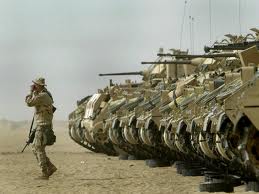dont you think with all that radiation in the atmosphere there would be aurora borealis? (northern lights) at night
Nope. Aurora don't work that way. In fact radioactive particles are no way energetic enough to cause auroras.
-

Johnny - Posts: 3390
- Joined: Fri Jul 06, 2007 11:32 am
And, uhm, radiatons can't be seen. Because they aren't a thing by themselves.
-

Laura Shipley - Posts: 3564
- Joined: Thu Oct 26, 2006 4:47 am
I'm fairly certain the phenomenon known as the "aurora borealis" does not happen in Boston. Alaska? Yes. We aren't that far north. I wouldn't expect to see it. Also, as the others suggested, radiation has nothing to do with an aurora borealis.
-

Misty lt - Posts: 3400
- Joined: Mon Dec 25, 2006 10:06 am
Auroras can be seen on both poles.
Aurora are caused by extremely high energetic particles ejected by the Sun colliding with oxygen and nitrogen molecules in the upper atmosphere near the magnetic poles. Radioactive isotopes (even the most radioactive one) emit microcopic amount of energy compared to these atomic bullets shot by the Sun. So no, they would not cause auroras.
-

Schel[Anne]FTL - Posts: 3384
- Joined: Thu Nov 16, 2006 6:53 pm
Ah my mistake i was thinking of something else, completely wrong but thanks! i thought i read somewhere northern lights had to do with radiation in some things
-

Judy Lynch - Posts: 3504
- Joined: Fri Oct 20, 2006 8:31 am
It would be cool to see something like that though, the night in Skyrim was amazing.
-

Campbell - Posts: 3262
- Joined: Tue Jun 05, 2007 8:54 am
i was actually thinking of the atmosphere with radiation in it, as when astronauts go through it, so i was thinking of that and not of the magnitude
-

Natalie Taylor - Posts: 3301
- Joined: Mon Sep 11, 2006 7:54 pm
The northern lights or aurora are the direct result of collisions between gaseous particles in the Earth's atmosphere with charged particles released from the sun's atmosphere.
I see them most clear and dark nights if I stay up late. They occur during the summer months but we can't see them because it's too light outside.
@ Nefla- Hi neighbor!
-

jenny goodwin - Posts: 3461
- Joined: Wed Sep 13, 2006 4:57 am
Actually a big enough solar eruption could result in aurora further south (or north). A big one in 1859 resulted in aurora as far south as the caribbean.
https://en.wikipedia.org/wiki/Solar_storm_of_1859
So theres an excuse for putting them in 
-

Jeneene Hunte - Posts: 3478
- Joined: Mon Sep 11, 2006 3:18 pm
Honestly, it's easier for me to envision the "nuclear sea" generating some type of radioactive fog that crawls out from it's cauldron on occasion. Perhaps at it's center is some form of nuclear fusion that is churning earthen matter into a subdued form of energy release. We already have heard of it creating lightning stoms that carry large amounts of radiation.
-

Katharine Newton - Posts: 3318
- Joined: Tue Jun 13, 2006 12:33 pm
I don't think radiation works that way. Although to be fair I have no idea how it would actually work in this context.
But I do have to say that Skyrim's night scenes were absolutely beautiful with the lights. Ive not seen them in real life, they're pretty rare in this part of Canada and you have to stay up until like 4 AM, but after seeing them in Skyrim ive wanted to get a opportunity to see them one day. Maybe traveling way up north into the arctic, up to Nunavut or any of the three territories.
-

sexy zara - Posts: 3268
- Joined: Wed Nov 01, 2006 7:53 am
You usually have to be pretty far north to see it all, and really far north to see it regularly. You can see it a bit farther to the south sometimes, my mom saw it once in northern Ohio (this is extremely far south to see it). Also, the aurora borealis (the northern lights) has a southern counterpart, the aurora australis
-

Marcus Jordan - Posts: 3474
- Joined: Fri Jun 29, 2007 1:16 am
The Southern Lights are called Aurora Australis, btw.
-

xemmybx - Posts: 3372
- Joined: Thu Jun 22, 2006 2:01 pm
-

Katie Samuel - Posts: 3384
- Joined: Tue Oct 10, 2006 5:20 am
The closest to Boston I've heard of the Borealis happening is atop Mount Washington on a good night, and that's in the White Mountains region of New Hampshire (bout a 2 hour drive with no traffic). Unless we get a DLC in that part of New England I doubt we'll see it.
-

CArlos BArrera - Posts: 3470
- Joined: Wed Nov 21, 2007 3:26 am
Thats true, i do see them but when its winter where i live.
Well i see it when its winter here in WI, but i was just wondering 
-

renee Duhamel - Posts: 3371
- Joined: Thu Dec 14, 2006 9:12 am
